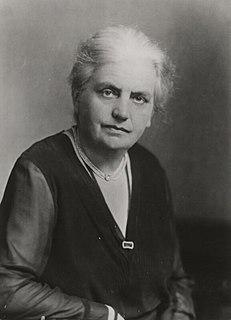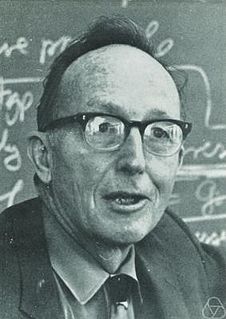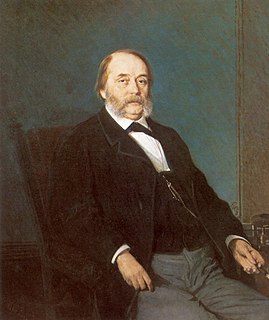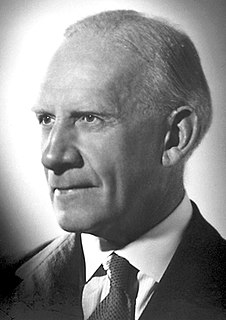A Quote by Albert Einstein
Mathematics deals exclusively with the relations of concepts to each other without consideration of their relation to experience.
Quote Topics
Related Quotes
I doubt whether there is any subject in the world of equal importance that has received so little serious and articulate consideration as the economic status of the family - of its members in relation to each other and of the whole unit in relation to the other units of which the community is made up.
It is almost as hard to define mathematics as it is to define economics, and one is tempted to fall back on the famous old definition attributed to Jacob Viner, "Economics is what economists do," and say that mathematics is what mathematicians do. A large part of mathematics deals with the formal relations of quantities or numbers.
. . . the membership relation for sets can often be replaced by the composition operation for functions. This leads to an alternative foundation for Mathematics upon categories -- specifically, on the category of all functions. Now much of Mathematics is dynamic, in that it deals with morphisms of an object into another object of the same kind. Such morphisms (like functions) form categories, and so the approach via categories fits well with the objective of organizing and understanding Mathematics. That, in truth, should be the goal of a proper philosophy of Mathematics.
What exactly is mathematics? Many have tried but nobody has
really succeeded in defining mathematics; it is always something
else. Roughly speaking, people know that it deals with numbers,
figures, with relations, operations, and that its formal procedures
involving axioms, proofs, lemmas, theorems have not changed
since the time of Archimedes.
There is nothing to be known about anything except an initially large, and forever expandable, web of relations to other things. Everything that can serve as a term of relation can be dissolved into another set of relations, and so on for ever. There are, so to speak, relations all the way down, all the way up, and all the way out in every direction: you never reach something which is not just one more nexus of relations.
Mathematics alone make us feel the limits of our intelligence. For we can always suppose in the case of an experiment that it is inexplicable because we don't happen to have all the data. In mathematics we have all the data, brought together in the full light of demonstration, and yet we don't understand. We always come back to the contemplation of our human wretchedness. What force is in relation to our will, the impenetrable opacity of mathematics is in relation to our intelligence.
The role of metaphysics in relation to other disciplines, whether philosophical or not and including the natural sciences, is thus a foundational role. Lack of clarity in the concepts of metaphysics implies lack of clarity in other disciplines - both theoretical and practical disciplines - employing those concepts or employing concepts that depend on those of metaphysics.
Why does philosophy use concepts and why does faith use symbols if both try to express the same ultimate? The answer, of course, is that the relation to the ultimate is not the same in each case. The philosophical relation is in principle a detached description of the basic structure in which the ultimate manifests itself. The relation of faith is in principle an involved expression of concern about the meaning of the ultimate for the faithful.





































